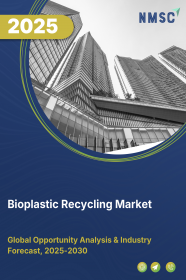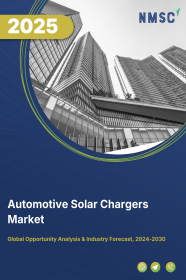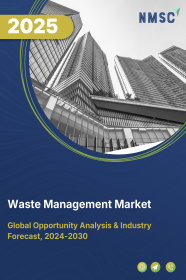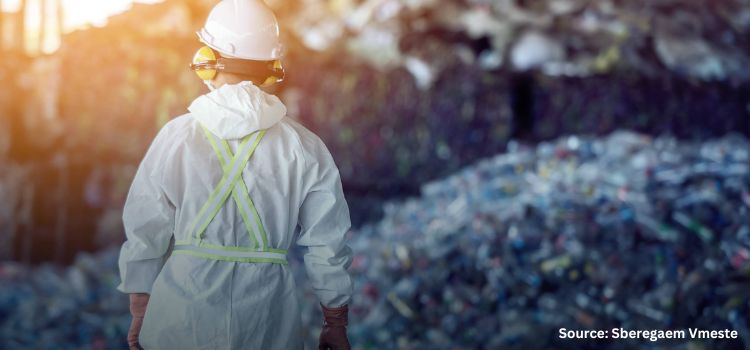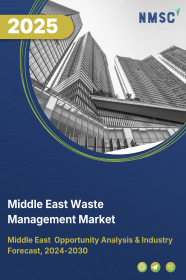
Middle East Waste Management Market by Waste Type (Municipal Solid Waste (MSW) or Household, Industrial, and Commercial) and by Waste Treatment (Composting, Incineration, Controlled Landfill, Uncontrolled Landfill, Sanitary Landfill, Open Dump, and Recycling)– Opportunity Analysis and Industry Forecast, 2024 – 2030
Industry: Energy & Power | Publish Date: 17-Feb-2025 | No of Pages: 181 | No. of Tables: 127 | No. of Figures: 72 | Format: PDF | Report Code : EP1255
US Tariff Impact on Middle East Waste Management Market
Trump Tariffs Are Reshaping Global Business
Middle East Waste Management Market Overview
The Middle East Waste Management Market size was valued at USD 6.86 billion in 2023, and is predicted to reach USD 12.67 billion by 2030, at a CAGR of 8.1% from 2024 to 2030.
The Middle East waste management market involves a wide range of services and activities aimed at managing and mitigating the impact of waste generated by various sectors including residential, commercial, industrial, and healthcare. It includes the collection, transportation, processing, recycling, and disposal of waste materials in a manner that is environmentally responsible and sustainable.
The market also involves the development and implementation of technologies and practices that promote waste reduction, resource recovery, and the safe handling of hazardous materials. Key components of the waste treatment market include waste collection services, recycling facilities, waste-to-energy plants, landfill operations, and environmental consulting services. As awareness of environmental issues grows, the waste treatment market continues to expand, driven by growing population, technological advancements, and increasing public demand for sustainable waste solutions.
Various Initiatives by Key Market Players Fuels the Growth of the Industry
The various initiatives by key market players significantly fuel the Middle East waste management market demand. Companies are actively engaging in advanced waste treatment technologies, innovative recycling programs, and comprehensive waste treatment solutions. For instance, in April 2024, Organic Recycling Systems Ltd. collaborated with Biocatalyst to develop innovative and eco-friendly methods for treating and disposing the wastes properly. These initiatives enhance operational efficiency, improve waste diversion rates, and address regional waste treatment challenges, thereby propelling the market forward.
Government Initiatives Towards Waste Disposal Propels the Middle East Waste Management Market Growth
The government initiatives in Middle Eastern countries further fuel the growth of the waste management market in the region. Policies and programs aimed at improving waste treatment practices, promoting recycling, and reducing environmental impact are being implemented across the region. For example, in July 2023, Dubai invested USD 1.9 billion waste-to-energy project and is designed to process up to 5,666 tons of waste daily, ultimately converting it into renewable energy. These government efforts drive market expansion and enhance overall waste treatment capabilities.
High Cost Associated with Waste Collection, Transportation Restrain the Market Growth
High cost associated with waste collection, transportation, and disposal services. The growing regulatory requirements for sustainable waste treatment and disposal, including recycling mandates and environmental compliance, further increase operational costs. Additionally, limited landfill capacity and high investment requirements for advanced waste treatment technologies act as barriers for market players, particularly for small and medium-sized enterprises (SMEs).
The Adoption of Waste-To-Energy Technologies Creates Future Growth Opportunities in the Market
The adoption of waste-to-energy technologies such as incineration, anaerobic digestion, and gasification presents a significant growth opportunity for the waste management market as these technologies convert waste materials into usable energy, reducing landfill dependency and contributing to sustainable energy generation.
By transforming waste into a valuable resource, waste-to-energy solutions promote environmental sustainability and drive market expansion. This innovative approach aligns with global trends toward circular economy practices and offers economic benefits by generating energy from waste that creates a promising avenue for growth of the waste treatment sector.
Competitive Landscape
The promising key players operating in the Middle East waste management industry includes Bee'ah, Emirates Environmental Group (EEG), Saudi Investment Recycling Company (SIRC), Global Environmental Management Services (GEMS), Qatar Green Building Council (QGBC), Seashore Group, Kuwait Waste Collection and Recycling Company (KWCR), Ecovert FM Kuwait, Al Haya Environmental Services, Gulf City Cleaning Company (GCCC), Dulsco, Imdaad LLC., Farnek Services LLC., Tadweer Group, Veolia, and others.
Middle East Waste Management Market Key Segments
By Waste Type
-
Municipal Solid Waste (MSW) or Household
-
Food
-
Paper and Cardboard
-
Plastic
-
Glass
-
Metal
-
Others
-
-
Industrial
-
Manufacturing Waste
-
Construction & Demolition Waste
-
Agriculture Waste
-
Other Industrial waste
-
-
Commercial
By Waste Treatment
-
Composting
-
Incineration
-
Controlled Landfill
-
Uncontrolled Landfill
-
Sanitary Landfill
-
Open Dump
-
Recycling
Key Players
-
Bee'ah
-
Emirates Environmental Group (EEG)
-
Saudi Investment Recycling Company (SIRC)
-
Global Environmental Management Services (GEMS)
-
Qatar Green Building Council (QGBC)
-
Seashore Group
-
Kuwait Waste Collection & Recycling Company (KWCR)
-
Ecovert FM Kuwait
-
Al Haya Environmental Services
-
Gulf City Cleaning Company (GCCC)
-
Dulsco .
-
Imdaad LLC.
-
Farnek Services LLC.
-
Tadweer Group
-
Veolia
REPORT SCOPE AND SEGMENTATION:
|
Parameters |
Details |
|
Market Size Value in 2023 |
USD 6.86 billion |
|
Revenue Forecast in 2030 |
USD 12.67 billion |
|
Value Growth Rate |
CAGR of 8.1% from 2024 to 2030 |
|
Analysis Period |
2023–2030 |
|
Base Year Considered |
2023 |
|
Forecast Period |
2024–2030 |
|
Market Size Estimation |
Billion (USD) |
|
Growth Factors |
|
|
Companies Profiled |
15 |
|
Customization Scope |
Free customization (equivalent up to 80 working hours of analysts) after purchase. Addition or alteration to country, regional, and segment scope. |
|
Pricing and Purchase Options |
Avail customized purchase options to meet your exact research needs. |

















 Speak to Our Analyst
Speak to Our Analyst



